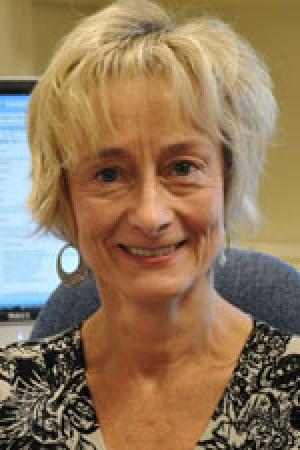People
Patricia Avery
-
Professor Emeritus, Social Studies
My interest in political socialization and education began almost 35 years ago as an undergraduate political science major: How do young people’s political conceptualizations and orientations develop, and what role does schooling play in the…
PhD, Emory University
Social Studies Education
Political tolerance, civic identity/education, teacher education
My interest in political socialization and education began almost 35 years ago as an undergraduate political science major: How do young people’s political conceptualizations and orientations develop, and what role does schooling play in the process? Early in my career, I focused on how U.S. students view dissent and dissenters in a democratic society. This led to inquiries into how students learn about dissent, as well as controversial issues generally, in the civics classroom. I served on the Expert Panel on Civic Education for the International Association for the Evaluation of Education Achievement (IEA) between 1995 and 2001. As part of that study, we examined data on the political knowledge and orientations of 14- and 17-year-olds from over 28 countries. I coordinated the evaluation of the Deliberating in a Democracy (DID) Project in 2004-2010, a study how secondary teachers in nine East European and Central Asian countries (Azerbajan, Czech Republic, Estonia, Lithuania, Macedonia, Romania, Russia, Serbia, Ukraine) and the United States used Structured Academic Controversy to discuss controversial issues. The project continued in Colombia, Ecuador, Mexico, Peru, and the United States in 2010-2012, and I serve as the Lead Evaluator.
Avery, P. G., Levy, S. A., & Simmons, A. M. M. (in press). Deliberating Controversial Public Issues as Part of Civic Education. The Social Studies.
Avery, P. G. (2012). The nature and status of civic education in the United States: Challenges and opportunities. Shakaika Kenkyu, Journal of Educational Research on Social Studies, 76, 41-58. [Invited article] [journal published in Japan]
Levy, S. A., Avery, P. G. & Simmons, A. M. M. (2011). Constructions of national narratives in established and emerging democracies based on student survey responses. Citizenship Teaching & Learning, 7(1), 5–34. doi: 10.1386/ctl.7.1.5_1
Avery, P. G. (2010). Deliberation as a core part of teacher education and civics classrooms. Enseñanza de las ciencias socials, 11-21. [Invited article]
Avery, P. G. (2010). Research on teaching the social sciences and teacher education. In R. M. A. Ruiz, M. P. R. Gracia, & P. L. D. Sanz (Eds.), Metodologia de investigacion en didactica de las ciencias socials (pp. 337-355). Zaragoza, Spain: Institucion Fernando Ed Catolico.
Avery, P.G. (2010). Assessment in the history, civics and social studies domains. In B. McGaw, P. Peterson & E. Baker (Eds.), International Encyclopedia of Education (3rd ed.) (pp. 323-329). Oxford, England: Elsevier.
Hess, D., & Avery, P.G. (2008). Discussion of controversial issues as a form and goal of democratic education. In J. Arthur, I. Davies, & C. L. Hahn (Eds.). International handbook on education for citizenship (pp. 506-518). London, England: SAGE Publications.
Avery, P.G. (2008). Tolerance, political. In W.A. Darity (Ed.). International Encyclopedia of the Social Sciences (2nd ed.) (pp. 385-386). Detroit, MI: Macmillan Reference USA.
Avery, P.G. (2007). Civic education in the United States: Increased challenges. International Journal of Citizenship and Teacher Education, 8(2), 22-39.

-
Curriculum and Instruction
125 Peik Hall
159 Pillsbury Drive SE
Minneapolis, MN 55455 - avery001@umn.edu
-
Retired in 2019
Professor Emeritus: No longer accepts new PhD students, advises, or teaches in the department.